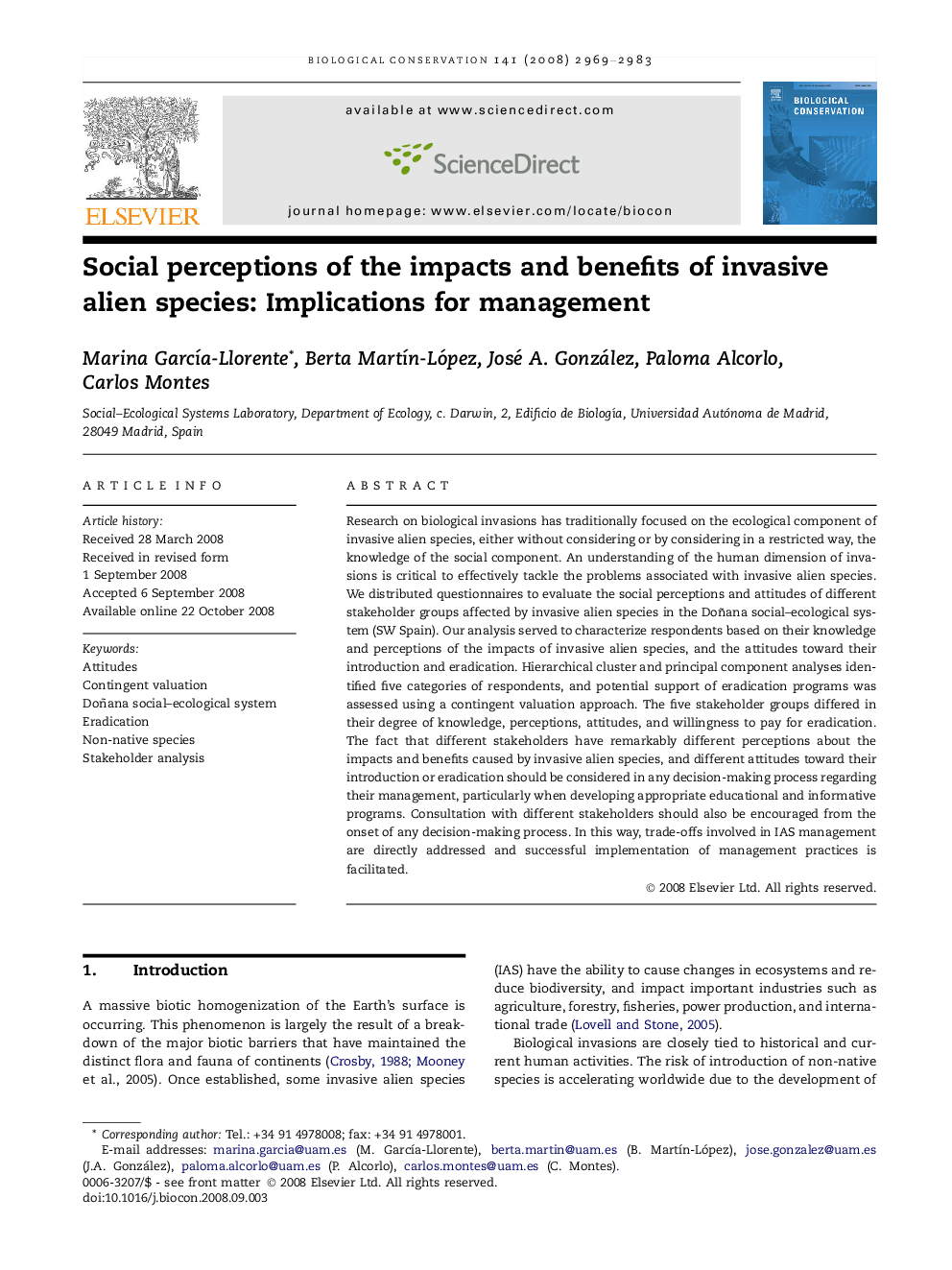| Article ID | Journal | Published Year | Pages | File Type |
|---|---|---|---|---|
| 4386606 | Biological Conservation | 2008 | 15 Pages |
Research on biological invasions has traditionally focused on the ecological component of invasive alien species, either without considering or by considering in a restricted way, the knowledge of the social component. An understanding of the human dimension of invasions is critical to effectively tackle the problems associated with invasive alien species. We distributed questionnaires to evaluate the social perceptions and attitudes of different stakeholder groups affected by invasive alien species in the Doñana social–ecological system (SW Spain). Our analysis served to characterize respondents based on their knowledge and perceptions of the impacts of invasive alien species, and the attitudes toward their introduction and eradication. Hierarchical cluster and principal component analyses identified five categories of respondents, and potential support of eradication programs was assessed using a contingent valuation approach. The five stakeholder groups differed in their degree of knowledge, perceptions, attitudes, and willingness to pay for eradication. The fact that different stakeholders have remarkably different perceptions about the impacts and benefits caused by invasive alien species, and different attitudes toward their introduction or eradication should be considered in any decision-making process regarding their management, particularly when developing appropriate educational and informative programs. Consultation with different stakeholders should also be encouraged from the onset of any decision-making process. In this way, trade-offs involved in IAS management are directly addressed and successful implementation of management practices is facilitated.
